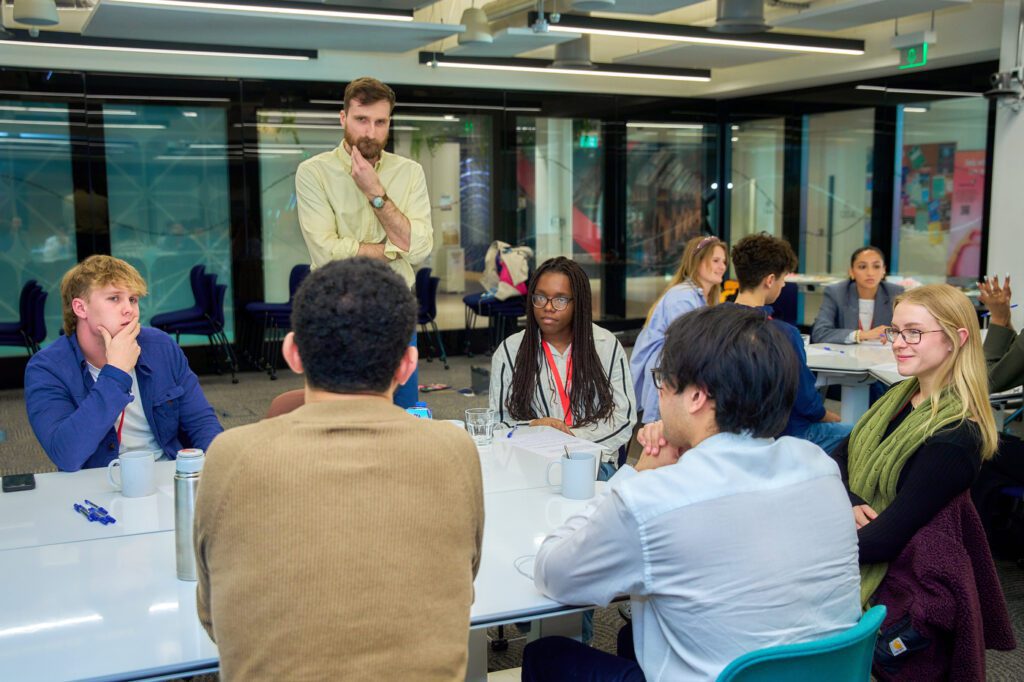MathLabs said the firm could implement some of the ideas presented by students into their AI-powered market research platform.
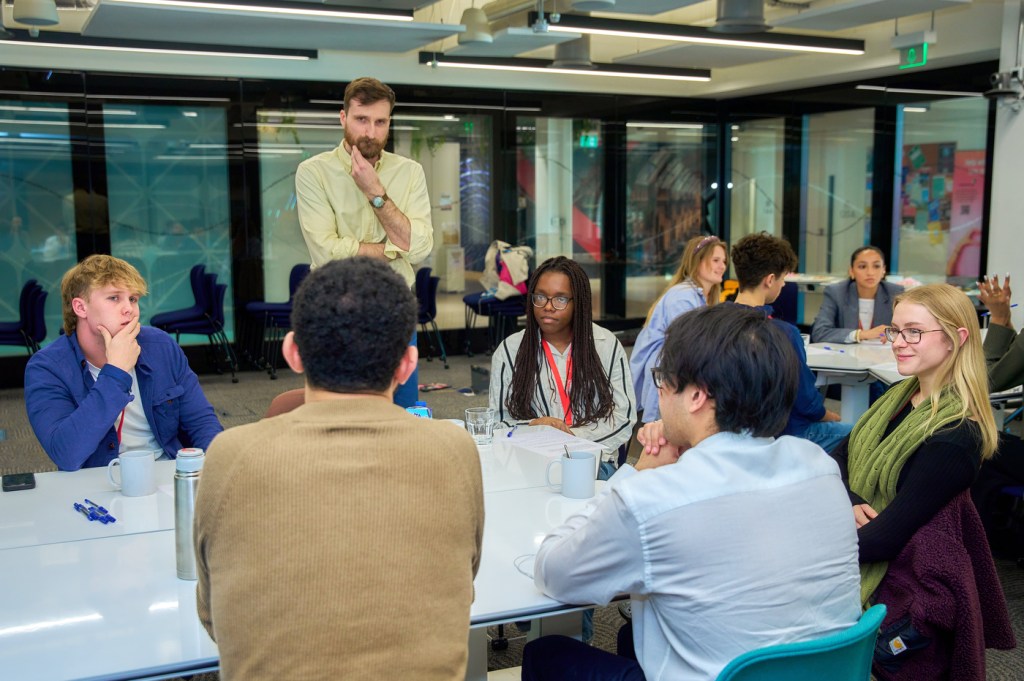
LONDON — When Rudolph Kohulah left campus, he planned to ping an email straight to colleagues at his artificial intelligence-led startup to shout about product improvements they could make.
The source of these proposals? Students at Northeastern University in London.
Kohulah, the lead AI scientist at MathLabs, had brought real-world challenges that the firm was experiencing with its business research platform to an undergraduate applied psychology conference at the school.
Speaking afterwards, he said he was so impressed with the “exciting” crowd-sourced fixes from the students that he was already picturing how to bring them to fruition. “There were a couple of solutions that I’m going to flag internally saying that we actually should implement some of these,” Kohulah confirmed.
MathLabs is a platform used by the likes of Japanese technology giant Fujitsu and German finance institution Deutsche Bank to assist with market research and industry analysis by speeding up internet and database searches using AI. It is commonly used by firms looking to make acquisitions and mergers, and some clients have credited the tool with saving up to 3,000 man-hours on a single project, according to MathLabs.
One of the problems MathLabs approached Northeastern with was that users sometimes need assistance to work out the unique benefits the research hub offers when compared with free-to-access generative AI platforms. The company can find itself putting staff time into explaining to clients how to get the most out of their subscription, Kohulah told the conference.
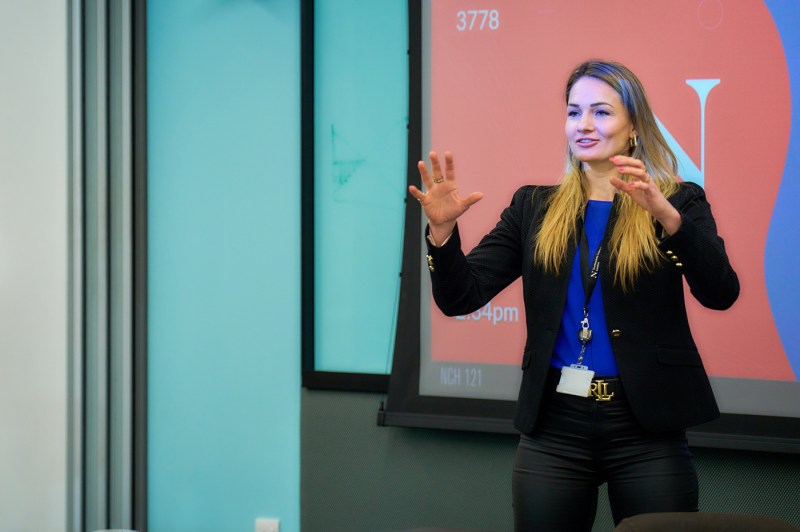
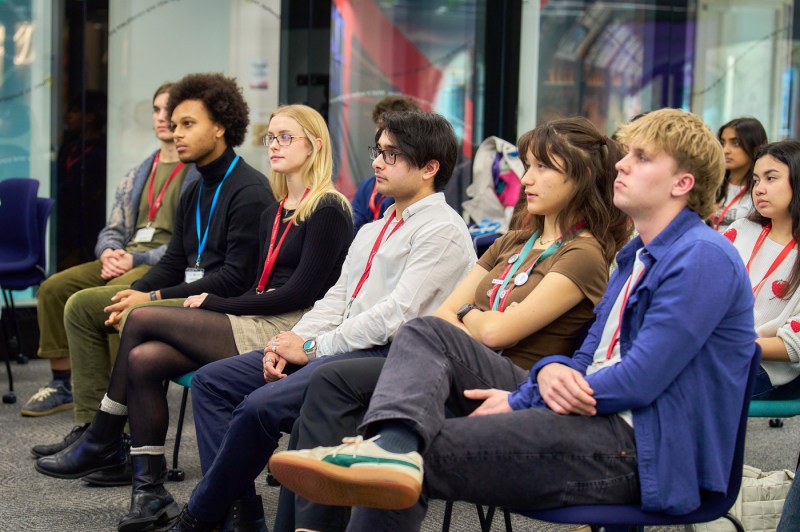
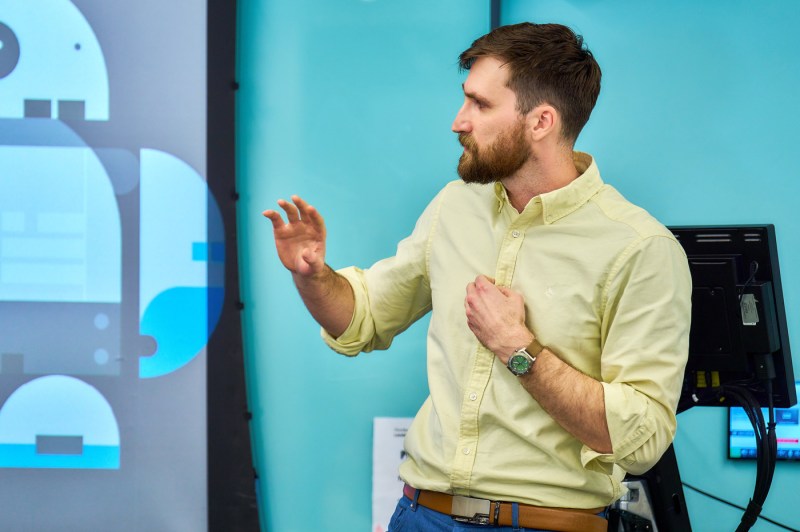
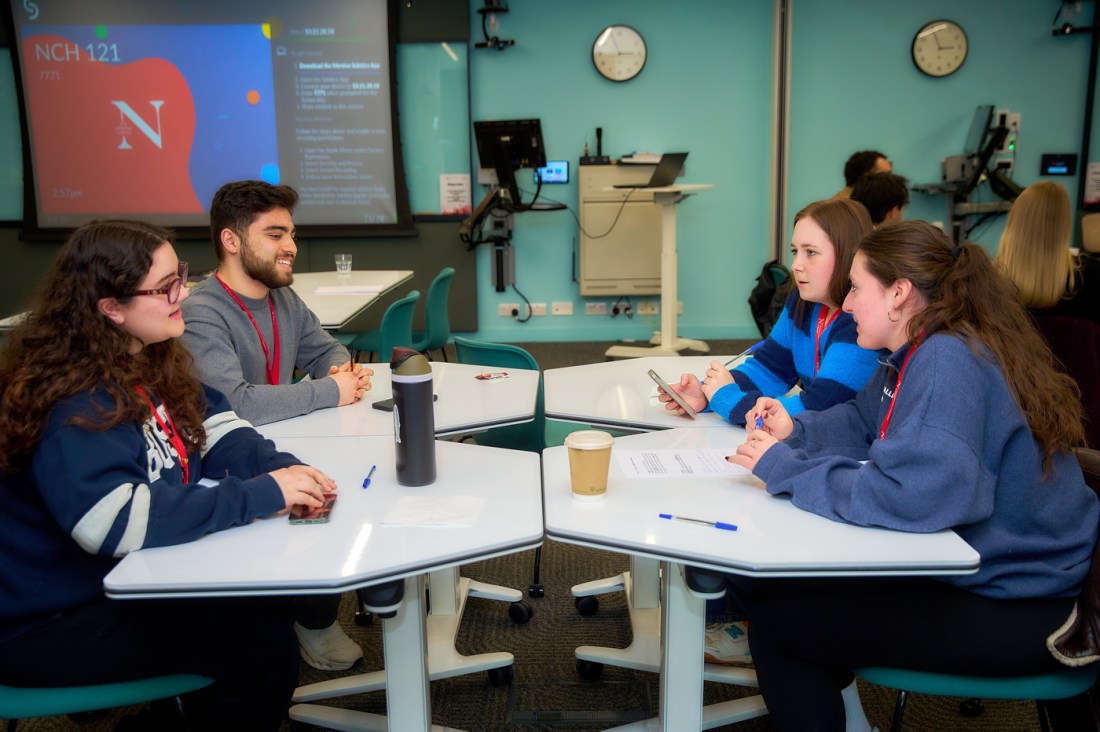
Kohulah explained that the startup was keen to speak with students to explore whether they had “psychology-based perspectives” that his technically-minded team, mostly made up of computer scientists, mathematicians and physicists, had not yet thought of or put into action.
After the students had presented their proposed solutions, he singled out Andrea Larsen, a third-year law and psychology student, as coming up with a “super, out-of-the-box” idea for helping to make the AI experience more intuitive for MathLabs users.
Larsen suggested coding the AI to provide regular prompts that could help users narrow the vast amount of search results down to information that was most useful to them.
Larsen — recognized as part of 2025’s Huntington 100, receiving one of the university’s most prestigious recognitions — said her proposition was designed to respond to a common stumbling block she feels that people have with AI, which is that users do not know the best questions to ask in order to get the most out of the advanced software.
“If AI can help me build a filter that is best for the industry I am researching as a user,” Larsen said, “then we are going to skip a whole lot of ‘I don’t know what I’m looking for.’ That was the idea.”
The Danish student’s proposal could have a strong impact on MathLabs’ product, said Kohulah. “After hearing her idea, I thought, ‘OK, we really should be doing that,’” the AI scientist said. “That is something that we can implement directly, and I think it is going to have a great impact. I already have in my head a way for how we can implement it, so that is really exciting.”
Larsen said she found it useful to see how her learning could be applied to challenges faced by industry. The work with MathLabs was particularly timely as, after graduating in the summer, she plans to pursue a career working in startups.
“This kind of experience helps us see how our education can be used, but also that we can use it for something we didn’t know we could use it in,” she continued. “It is broadening our horizons for where to go with our next career move.”
In addition to Larsen’s proposal for introducing AI prompts to filter information, students also came up with propositions for MathLabs that could potentially increase user confidence and trust in its AI-driven results and suggested allowing users to choose between being given a top-level overview or more data-intensive returns when searching.
Psychology major Arnav Makhan said working with MathLabs helped bring home how wide-reaching his subject can be. “A big element in a lot of the things we talked about at the conference was neuro-marketing,” said the second-year student from India.
“The whole point is that psychology is so interdisciplinary and it can basically be integrated into everything, because everything we learn is human-related behavior.
“Especially within the context of improving MathLabs and making it more accessible and more consumer-friendly, that is something in which psychology has a big part to play. Having that application was very interesting for us and it was definitely fun to talk about.”
Mia Humphries, also a second-year psychology major, who hails from West Sussex, England, said she found the experience “really interesting.”
“You almost don’t realize you are using psychology until you are in this context,” she said. “It helps provide you with so many perspectives.”
Bianca Serwinski, an assistant professor in psychology who led the conference in March, said the positive reception from MathLabs was a “real testament to the quality of thinking the students brought.”
“I think it is crucial for students to engage with real-world challenges from startups like MathLabs,” Serwinksi said, “because it brings psychology to life beyond the classroom.
“It gives students the opportunity to see how human behavior, decision-making, trust and design intersect, especially in fast-moving fields like AI. It was genuinely exciting to see the students so engaged and to witness them offering practical, original ideas that made a real impact, all within the space of one interactive challenge.”


